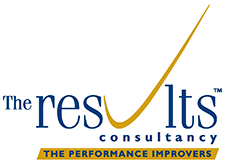
2020 promises to be a year of change for professionals and their firms. The post-Brexit landscape will require a period of adjustment for businesses and individuals alike, and many will turn to their advisers for help and guidance along the way.
Advisers now have an opportunity to show greater commerciality than their competitors – to demonstrate that they understand the changes and implications as they start to unfold and become clearer, and to explain them and advise with sharp relevance to their clients.
And for those advisers who display their commercial acumen and situational knowledge, the rewards can be significant. As well as generating deeper client trust and loyalty, they will also appeal to new clients looking for relevant, timely and practical advice.
In this article we have shared 7 ways to showcase your commercial awareness in 2020 with your clients and contacts.
1 Follow latest developments to be proactive
People really value a proactive professional who alerts them to issues or opportunities and seems to be thinking of them and their situation. To be proactive in your support of clients and contacts in 2020, you will need to:
- Have a good overview of their operations (for an organisation) or circumstances (for a private client)
- Follow developments and commentaries as change unfolds and next steps become clear
- Reflect how the changes will affect them and what they may need to do about them
- Approach them with relevant ideas, insights and advice
At a base level, proactivity can be demonstrated by being an extra pair of eyes and ears and highlighting a piece of relevant news to them. Your clients and contacts will be impressed if you can come up with thoughts to help them make the most of changes – whether that’s winning more business, making what they are doing easier, reducing their risks, or helping them be more efficient and profitable.
Wherever possible, alert your clients and contacts to any upcoming deadlines or changes to current ways of working or protocols, and offer to help if they’re struggling. Don’t let a competitor pip you to the advisory conversation.
2 Listen then adapt
Clients will be reassured if they feel you’ve listened closely and empathetically to their issues and have adapted your advice accordingly. This is about asking your contact questions that further clarify your understanding of the situation they’ve described. Don’t assume. You don’t necessarily need to know their entire strategy, or even everything about the issue in hand, but you should understand the wider context of your advice and how it will be applied in their organisation, and in the situation you are advising on.
3 Take a broader focus
Commerciality involves giving options and creating a fresh perspective, as well as being super-responsive and excellent at delivery. It’s not easy, but being seen by clients and contacts as ‘more commercial’ than your competitor counterparts is a major step towards differentiating your approach. Adopting a commercial mind-set means recognising your technical advice is only part of the story. Asking why the advice is needed, and who your client is hoping to influence with it, can radically improve the perceived commerciality of your input.
4 Recognise your client’s clients – and what they must deliver for them
Clients value those advisers who align with their ways of working. This means recognising the pressure on your contacts in terms of their time, deadlines and stress. Find out what they need to deliver to their own clients or internal decision-maker, as it’s important to have an appreciation of what they have to do with your advice.
It really helps if you can be user-friendly in your approach. Base your recommendations on recent similar situations, what others are doing and where the market is heading.
5 Communicate in ways that are efficient and valuable – in your client’s eyes
Many client frustrations often stem from a lack of, or confusing, communication from their adviser. Whilst your contacts probably don’t want you to update them with minutiae; they do want to be kept informed. The key is to find a subtle balance. This comes from respecting they are busy and keeping what you say clear and concise.
Select the communication channels they prefer, and ask them about the frequency of communication they will find appropriate. And when a project finishes, use your commercial sense to maintain appropriate contact to see if you can add further value to the relationship. Show initiative and think, is there anything else I can do to move this forward and help this person or organisation?
6 Deliver what you mutually agreed – content and deadlines
A client and contact will be impressed, not just in the content of your advice, but also in the way you deliver it. Key to your success here will be how you scope the task at hand, plan and project manage it. That means ensuring that you and your client have an agreed understanding of the results expected.
It also means breaking the project into stages and allocating responsibilities to members of your team with the right expertise. Effective communication (both with the client and within your team) will also help you to monitor the progress of the project and assess it against the agreed deliverables, including budgeted cost.
7 Take the initiative with difficult decisions
Becoming an adviser that people can rely on also involves having difficult or ‘challenging’ conversations with them when required. Being commercial means, for example, standing your ground on fees where appropriate and recognising the value you bring to clients. It also means:
- informing them of potential over-runs earlier rather than later
- giving your professional opinion and perspective
- where necessary, aiming to shape your client’s current thinking when you know it is in their interests to consider other options.
…And finally
In a highly competitive professional services landscape, advisers who are perceived by their clients and contacts to be ‘commercial’ tend to be more successful and attract more business. If you are keen to improve your commerciality, start with these 3 core activities:
- As change unfolds in the political and economic landscape, think more broadly about how you could help your clients and contacts cope. Help them have a successful 2020, despite the uncertainty.
- Make your client contacts and other contacts ‘look good’ to the key people they need to impress.
- Become an adviser that they can rely on every time – on quality of content, relevance of ideas, and fast delivery to agreed timelines.
And if you feel you need to adopt greater commercial awareness amongst your team, feel free to get in touch to discuss our coaching, training and e-learning support for this skill.


